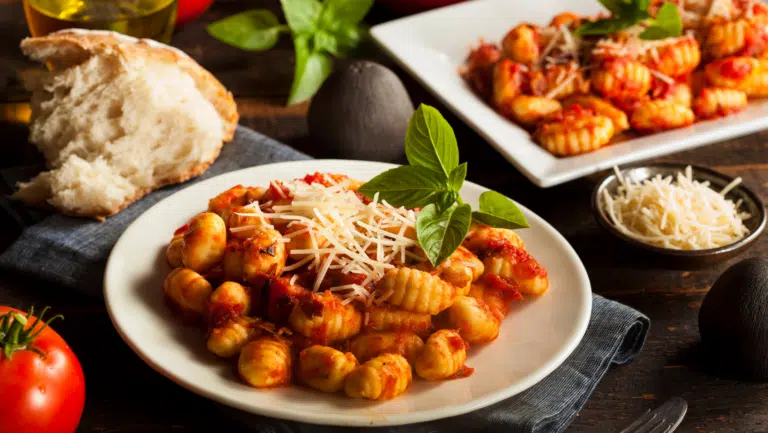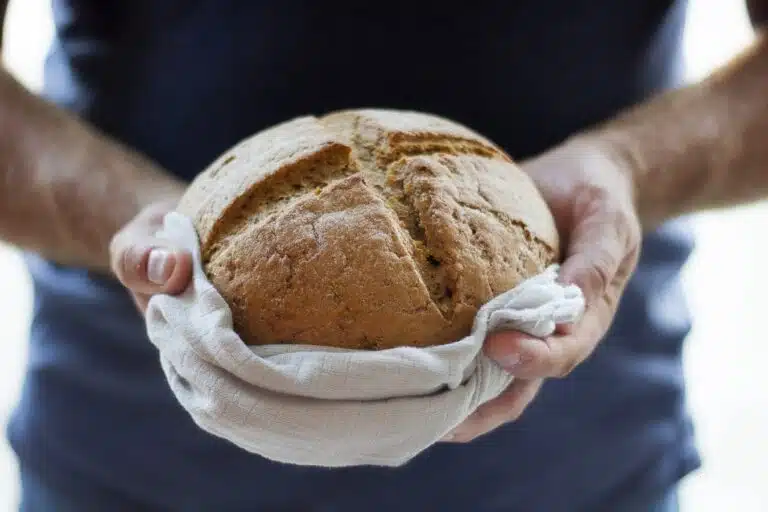
Managing an IBS Flare
Managing an IBS Flare
- filed under: All, FODMAPs & Food Intolerance, Health & Wellness, Low Chemical/Failsafe
One of the cool things about a low FODMAP diet is that it’s not a game of perfect. Although FODMAPs can cause nasty symptoms, they don’t cause damage and they are not dangerous. In fact, many FODMAPs are actually beneficial for your gut microbiome! This all means that managing IBS is really about first identifying your food triggers and then limiting them just enough to make your life better. And, not limiting them so much that food restriction interferes with your mental health.
Ultimately, making your life better with IBS can be a delicate balance of limiting food just enough to stay comfortable but at the same time relaxing your diet enough to enjoy a meal out with friends and family. Of course, this is a delicate balance and occasionally you will misjudge or accidentally come into contact with a trigger.
Let me reassure you, even the best of us misjudge at times and at other times we throw caution to the wind and just eat the food. This is totally normal! And, at these times, your gonna want to have a plan for how to manage things and get back to a comfortable gut sooner rather than later. And that’s what we are going to cover in this article.
What is a flare?
IBS tends to fluctuate. Giving you good days and bad days. When we talk about a flare, we are referring to the bad days where your symptoms are worse than usual and are interfering with your day. Symptoms may include bloating, cramping, wind and altered bowel movements. Flares usually last a few hours or a day, but it can take a few days before you feel “normal” again. If your flares are lasting days or weeks on end, that’s a flag to book in with one of our specialist dietitians to troubleshoot.
What causes a flare?
IBS doesn’t have one specific cause. Instead, there are several different factors that influence IBS symptoms making them better or worse. The most common triggers that make IBS worse are certain food choices (these are different for different people too), stress, poor sleep and hormones.
How to manage a flare
Step 1 Remove all potential triggers and gut irritants
- This is where you go back to your baseline diet to bring yourself as far under your threshold again as possible.
- You may also consider foods which are not FODMAPs, but are considered “gut irritants”. These are things like spicy foods, fatty foods, fizzy drinks, coffee and alcohol. When your IBS is behaving, you will likely be fine with some of these gut irritants, but if your gut is cranky, they can make it that little bit crankier.
Bland and plain foods are really your best friend at this time. Think chicken and rice, mashed potato, plain toast, gentle soup. Whatever food you find gentle on the gut and soothing to eat.
Step 2: Be kind to yourself
Something to know about IBS is that how you think about your symptoms will influence on how you experience your symptoms. So start by reminding yourself that FODMAP is not a game of perfect. You do not have to follow it perfectly at all times. And that’s ok. Accidentally (or intentionally) eating something higher FODMAP may cause symptoms, but they will pass. It’s not a sign of failure and does not mean that you have to restart everything from the beginning.
Calming and soothing thoughts and activities will also calm the gut brain axis and potentially also reduce symptoms severity as well. The gut brain axis is a big part of IBS, you can read more about it and its influence here.
If you feel you need a day on the sofa with Netflix and a cat cuddle, go for it. Other ideas that help with symptoms and your mood include:
- Meditation or gut hypnotherapy to calm the gut brain axis
- Yoga and stretching can help with digestion and trapped gas
- A walk outside for fresh air can reset the mindset
Step 3: Treat your symptoms
Ok, lets treat those symptoms. There are lots of options depending on what symptoms you are experiencing:
- Don’t underestimate the benefit of a good heat pack for bloating! In my experience, by far the best and most underrated way to soothe a tender tummy.
- Peppermint relaxes smooth muscle and reduces cramps as well as aiding in gas clearance. You can sip peppermint tea or get peppermint oil capsules from the pharmacy. The benefit of the capsules is that they are enteric coated, so they survive the acidic stomach juices and reach the intestines where you want them.
- Ginger and Iberogast can help with bloating, reflux and nausea
- Fibre supplements are great for bringing both constipation and diarrhoea back to the middle. Fibre acts like a sponge soaking up water in the gut. This helps to make looser stools better formed and has a bulking and softening effect on small, hard stools, making them easier to pass. Keep in mind that fibre needs water to work properly, so if you increase your fibre, you also need to increase your water intake.
- If things are severe, Gastro stop or Imodium will reduce the frequent toilet visits or over the counter laxatives can help to get things moving again.
- Degas (simethicone) helps break up and clear gas.
- Buscopan is an antispasmodic that can help reduce cramping.
- Stay hydrated! If you have a lot of diarrhoea electrolyte drinks may be helpful.
Nb: the advice here does not replace the advice of your healthcare team. Please speak to your doctor, pharmacist or IBS dietitian about what medication or supplement options are suitable for your needs.
Final thoughts:
FODMAPs simply pass through the digestive tract. They go in one end and come out the other, creating gas and attracting water on the way. The result being in IBS type symptoms in some people. The good news is that they usually leave your system within a day or two. While the worst of the symptoms usually passes by this time, it may take some people a bit longer to feel “normal” again.
If you are struggling with frequent or unexplained flares, Everyday Nutrition dietitians are trained and experienced in all areas of IBS, IBS treatment and food sensitivity. We have helped thousands of people just like you pinpoint their triggers and resolve digestive issues. If you are ready to take back control book an appointment today.
TAGS:
SHARE THIS POST

Meet Joanna
PASSIONATE IN DIGESTIVE HEALTH
grab your freebie
Week 1 - Low FODMAP Menu






One Comment